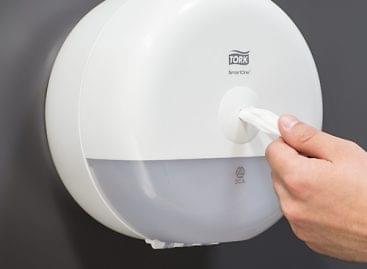EUDR: a new due diligence obligation for companies to protect forests
Last year Regulation (EU) 2023/1115 of the European Union on the placing on the EU market and export from the EU of certain goods and products related to deforestation and forest degradation (abbreviated as EUDR) entered into force and will apply from 30 December 2024. On average every 6 seconds a hectare of forest disappears from Earth.
This article is available for reading in Trade magazin 2024/10

Guest writer:
Dr. Rita Szalay
ESG-director
PwC Hungary
Deforestation accelerates climate change and biodiversity loss, depletes natural resources and can increase the risk of pandemics. The European Union is one of the world’s largest importers of deforestation-related goods and products, accounting for around 10% of global deforestation. The EUDR applies to an extensive list of products (“relevant products”) made from deforestation-related commodities (“relevant commodities”) such as cocoa, coffee, palm oil, cattle, soy, rubber and timber).
Preparing companies for EUDR compliance
Under the new regulation, companies that market or export or import products from these seven commodities mentioned above will have to put in place and operate an appropriate risk management system, to ensure that the products are deforestation-free: they originate from land where deforestation or forest degradation hasn’t occurred after 31 December 2020. In several EU countries (including in Hungary) large companies are already subject to an obligation to perform sustainability due diligence of their supply chains, taking into account human rights and environmental impacts. EUDR requires that the placing on the market, importing or exporting of these relevant products can only happen if all three of the following conditions are met: 1. they don’t contribute to deforestation or forest degradation, 2. they have been produced in accordance with the relevant legislation of the country of production, 3. they are subject to a due diligence declaration. Both operators and retailers must provide the competent authorities or customs authorities with the appropriate due diligence declaration through a European register.

Screening requirements under the EUDR
The EUDR regulation also specifies how the screening process is to be carried out. First of all, comprehensive information must be collected on suppliers and products, in particular on the country of production (cultivation, farming) and the exact location. On the basis of the information collected, companies will then need to do a risk assessment according to a defined set of criteria and implement mitigation measures where necessary. The due diligence requirements are simplified if all goods and products originate from low risk countries. Companies must report publicly on their due diligence system annually and retain all due diligence documents for at least five years. The EUDR requires EU member states to designate competent authorities and details the obligation to carry out inspections to ensure compliance with its provisions. The regulation also introduces corrective measures in case of non-compliance and defines sanctions, which may include a fine of 4% of EU-wide turnover and confiscation of goods and revenues. With less than half a year until the regulation becomes mandatory on 30 December 2024, companies need to start preparing, assessing their exposure and the potential risks and setting up their due diligence systems. //
Related news
A lake of wastewater is generated in Hungary in two to three weeks
🎧 Hallgasd a cikket: Lejátszás Szünet Folytatás Leállítás Nyelv: Auto…
Read more >Related news
Innovations, success stories and awards on the same stage
🎧 Hallgasd a cikket: Lejátszás Szünet Folytatás Leállítás Nyelv: Auto…
Read more >Farewell day at the 60th anniversary EuroShop trade fair
🎧 Hallgasd a cikket: Lejátszás Szünet Folytatás Leállítás Nyelv: Auto…
Read more >NAV: Women’s Day inspections begin
🎧 Hallgasd a cikket: Lejátszás Szünet Folytatás Leállítás Nyelv: Auto…
Read more >







